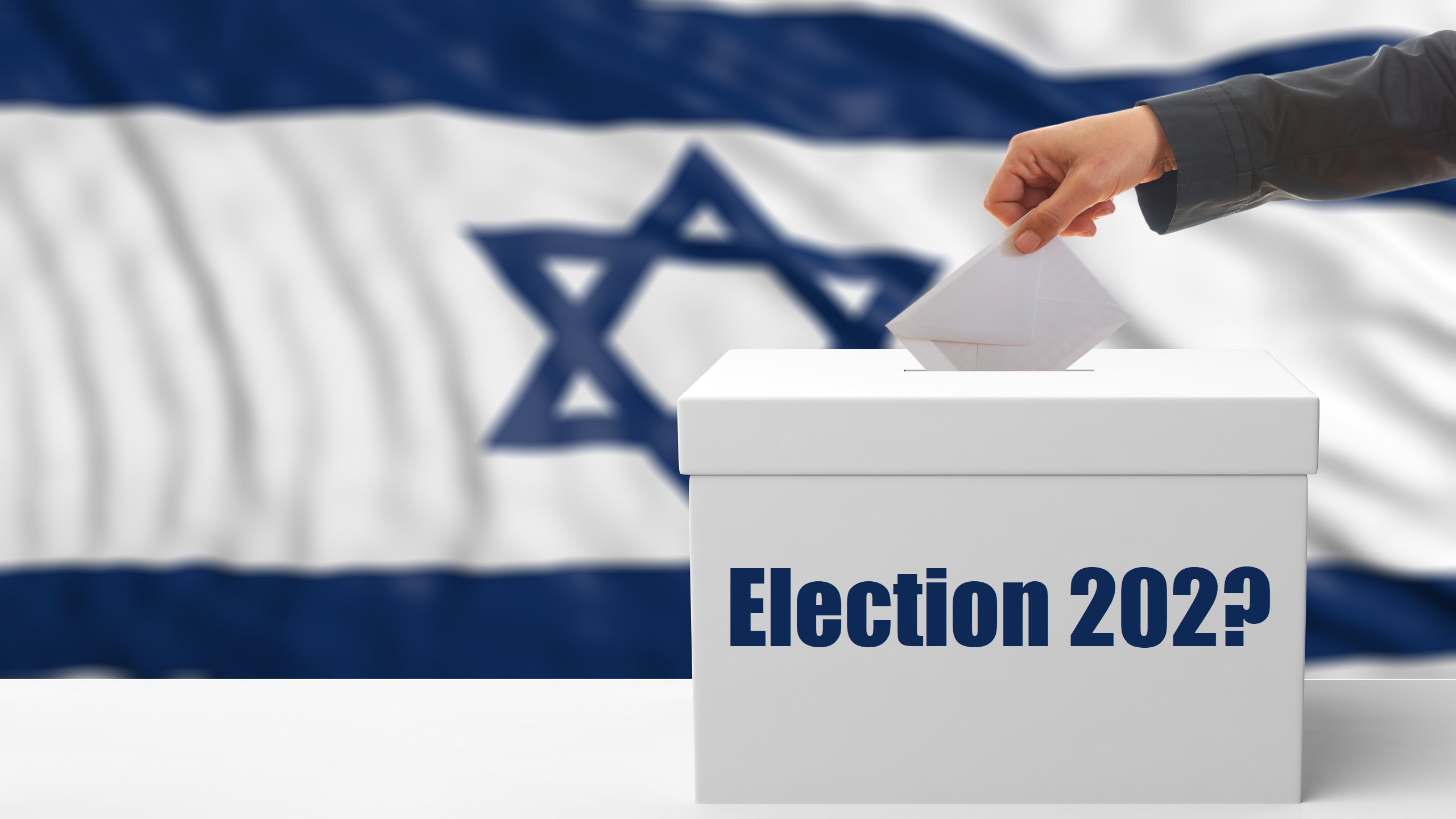Unity in Israel Begins To Crack as War Effort Lingers
Oct. 7 may have temporarily pushed political disagreement aside. However, Israelis who previously opposed the Netanyahu government over the plans to implement a judicial reform are now doubting Netanyahu’s intentions about the war.
When the war between Hamas and Israel erupted on October 7, 2023, Israelis instantly united. After almost a year of bitter divisions over a government plan to overhaul the judicial system, the scenes of Hamas’ offensive on Israel immediately pushed aside all the divisions.
As hundreds of thousands of Israelis were called up for reserve duty and others volunteered on the home front, there was a sense that the disagreements that sharply divided people just a day before had vanished.
Most members of the parliamentary opposition, who had frequently called for the ousting of Prime Minister Benjamin Netanyahu, announced they were now backing the government. The second largest opposition party, led by former military chiefs Benny Gantz and Gadi Eisenkot, joined the government just days after the fighting began.
Since then, more than three months into the war, the political fractures are becoming visible again.
There was a feeling that the war would end swiftly. … But now, as even senior officials including Netanyahu say it will last a least a year, those who want to replace him say waiting until the war is over is too long.
“There was a feeling that the war would end swiftly,” Roni Rimon, a strategic adviser and partner at the public relations firm Rimon Cohen & Co., told The Media Line. “But now, as even senior officials including Netanyahu say it will last a least a year, those who want to replace him say waiting until the war is over is too long.”

Roni Rimon. (Yisrael Hadari)
Israelis who previously opposed the Netanyahu government over the plans to implement a judicial reform are now doubting Netanyahu’s intentions about the war.
The issues, the fractures that existed until the 6th of October are still there
“The same forces that were operating before the war continue to exist,” said Dr. Liron Lavi, an assistant professor in the Department of Political Studies at Bar-Ilan University. “The issues, the fractures that existed until the 6th of October are still there. There are still deep divisions about the identity of the state and where it is headed. To some extent, the divisions are even more highlighted because there is a war going on and people are paying with their lives.”

Dr. Liron Lavi. (Bar-Ilan University)
As the unity seems to wane, some are questioning whether Netanyahu’s handling of the war is steering Israel in the right direction. Meanwhile, others are questioning the prime minister’s motives, suggesting his political interest lies in the continuation of the fighting, which inevitably delays his political demise.
While Netanyahu has repeatedly ruled out holding elections during a war, increasingly, more and more voices are saying that elections are needed now.
“Israelis have a tendency to unite in times of trouble, but once the trouble subsides a bit, we go back to infighting,” said Moshe Solomon, deputy speaker of Israel’s parliament, the Knesset. “In the Knesset, we are trying to preserve this unity because we understand that this is our power in the Middle East. We will make a grave mistake if we return to arguing as we did before October 7.”

MK Moshe Solomon. (Yehuda Cohen)
Netanyahu has led Israel for about 16 of the last 28 years, and, crucially, for around 80% of the period since Hamas took control of the Gaza Strip. During that period, he played a major role in the strengthening of Hamas. The Israeli leader allowed continuous aid to enter Gaza that was largely directed at Hamas’ military capabilities and, consequently, helped cement its hold on the Gaza Strip. The policy perpetuated the internal Palestinian rift between Hamas in Gaza and the Palestinian Authority in the West Bank. Netanyahu has been quoted as saying that keeping Hamas in power in Gaza would ultimately prevent the establishment of a Palestinian state, a cornerstone of his policy towards the Israeli-Palestinian conflict.
Hamas was treated as an asset that could keep Gaza quiet, as Israel conveniently ignored the gradual strengthening of the terrorist organization. Meanwhile, Hamas grew into a sizeable threat.
Netanyahu was not alone in his policy and was supported by many in both the defense and political echelons, including Gantz and Eisenkot.
This is one of the reasons—but not the only one—that the Israeli premier and his Likud party are lagging in the polls, with numbers showing the party being cut in half if an election were held today. Gantz’s party, Blue and White, has almost tripled in the polls. The ultra-right-wing party, Jewish Power, has also gained some strength. It is led by National Security Minister Itamar Ben-Gvir, who has consistently voiced hardline positions about Israel’s war on Hamas.
Polls are not prophecies. They reflect the sentiment that exists on the day they were conducted.
“Polls are not prophecies,” Lavi told The Media Line. “They reflect the sentiment that exists on the day they were conducted. What they are now reflecting is that the public is looking for a combination of unity and statehood, together with a tougher stance on Hamas.”
The personalities representing these two wishes are often on opposing sides of the political map.
Gantz appears to have made his political capital on putting politics aside, including his own personal benefit, and giving the Netanyahu government his backing as Israel faces an uncertain future in the region.
“Gantz’s poll numbers are unrealistic and reflect the lack of an alternative for voters who are right-wing but do not want Netanyahu or the current Likud party,” Rimon explained. “Once there will be new actors from the right wing, this will change.”
But the undercurrents that reflect unease with the current leadership are gradually growing.
“It is like a water dam that has a small leak, which is gradually growing,” Rimon told The Media Line. “This sentiment will likely increase, but it is dependent on developments on the ground.”
In an interview last week, Gantz’s party member Eisenkot said that the Israeli leadership was not telling the public the truth. As part of the five-member war cabinet assembled at the beginning of the war, Eisenkot went on to say that the government was spreading “illusions” by telling Israelis that the hostages could be freed through military operations. The former army chief, who himself recently lost his son in the war, said the only way to secure a hostage deal was through an elongated cease-fire.
His comments came as relatives of the hostages stepped up public pressure against the government.
On Saturday, thousands of people gathered in several Israeli cities calling for the release of the hostages being held by Hamas in the Gaza Strip. One of those protests was in front of Netanyahu’s home. Demonstrators held signs of the hostages, some saying the government wasn’t doing enough. The goals of the war, as set out by the Netanyahu government, were to release the hostages and topple Hamas. As time inches by, there are increasing divisions about how the war is being handled and whether the fighting is risking the possibility of a hostage deal or promoting one.
On Monday, the Knesset is set to vote on three different no-confidence votes against the government. While it is highly unlikely that there will be a majority in favor of them, the notion of unbreakable unity is beginning to crack.
“Now is not the time,” Solomon told The Media Line. “While it is important to uphold democratic values at all times, when there is a war and our soldiers from all parts of society are on the front lines, this is not conducive. Until the war is over, I would like to see consensus.”
Solomon acknowledged that maintaining the consensus may not be possible.
“After the 7th of October, there is a general feeling that what existed in the past can no longer exist,” said Lavi. “The public is looking for a response from the political echelon, this response hasn’t come yet.”
According to Lavi, the dice are still in the air and haven’t landed yet. While the public wants to see a change, it has not yet clearly formulated what it wants. History shows many instances in which countries were at war while internal divisions existed.
“Events like 9/11, the Vietnam War, and Israel’s Yom Kippur War all started with a rallying around the flag,” she said. “But war is not an insurance policy for unity.”
For now, the coalition appears to have no threat to its stability. Should Gantz decide to walk out, Netanyahu still has a majority. His allies to the right, while voicing dissatisfaction with what they see as a weak Israeli response to Hamas, have no better alternative.
“There are many interests that will keep this coalition intact,” said Solomon, himself a member of the Religious Zionism party, which is part of the government.
The next elections are slated for late 2026.
“Before the war, this may have been possible. But now, as we failed to protect our people, there are cracks that may shorten the coalition’s life,” Solomon added.
When joining the government, Gantz made it clear it was only to be part of the war effort. As this effort wanes, he is likely contemplating the timing of his exit.
“As long as there is intense fighting, he will and should stay,” said Rimon, “But the longer he stays, the higher the chances that any failures will stick to him.”
Gantz’s departure could signal to the public that the time is ripe for elections. According to Rimon, such a move could set off more intense public pressure to head to the ballots.


